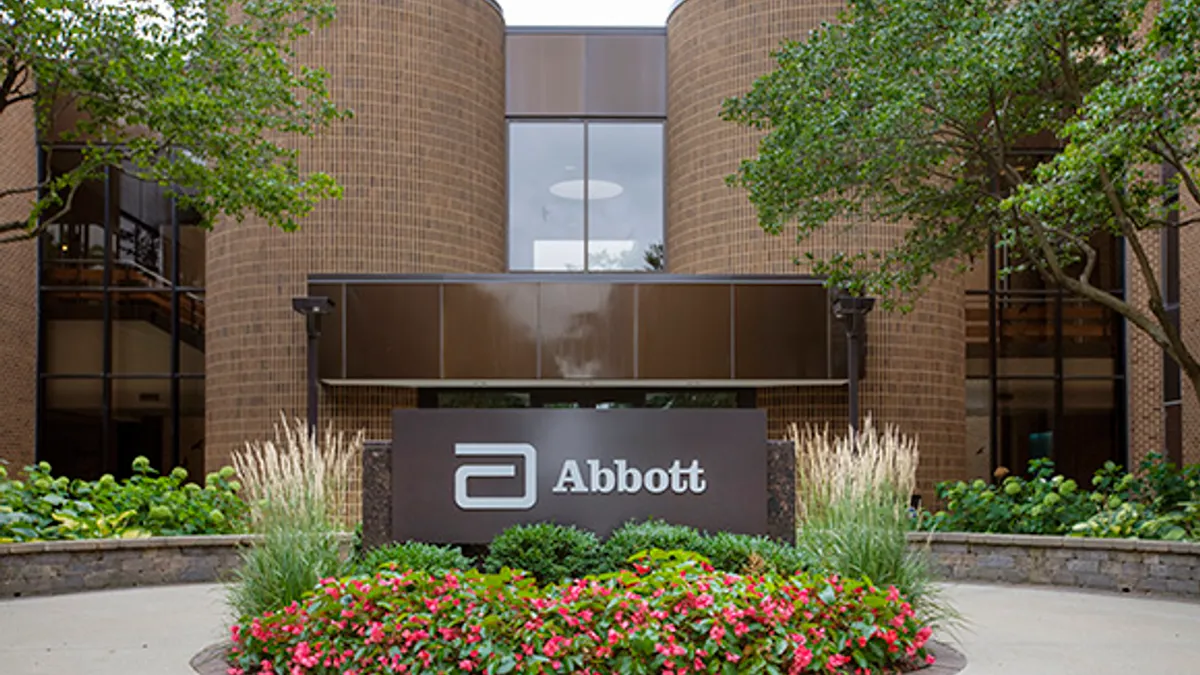Dive Brief:
- Abbott said Monday it has received Food and Drug Administration approval for its Esprit resorbable scaffold system in patients with blocked arteries below the knee (BTK).
- The device is designed to keep vessels open to deliver the immunosuppressant everolimus before the stent fully dissolves. The FDA approved the device after Abbott linked the resorbable scaffold to a lower rate of vessel re-narrowing than balloon angioplasty in chronic limb-threatening ischemia (CLTI).
- RBC Capital Market analysts said in a note to investors that the approval unlocks a $400 million U.S. market. The RBC team found a “strong appetite” for the scaffold, but their counterparts at BTIG said the need to train centers could result in a “gradual” launch.
Dive Insight:
Angioplasty has been shown to achieve better outcomes than vein bypass surgery in people with BTK arterial disease. However, vessels can re-narrow, a process known as restenosis. Patients with restenosis must undergo another procedure, in some cases to remove the limb. Mechanical scaffolds can keep arteries open but at the cost of preventing remodeling of the vessel and a risk of late complications.
Esprit is designed to physically support the vessel and release everolimus to reduce the risk of re-narrowing. Over three years, the scaffold is resorbed to allow vessel remodeling and reduce the chances of late complications.
Abbott validated the technology last year in a randomized trial of 261 patients with CLTI. The trial showed that 26% of people who received Abbott’s Esprit system had suffered negative outcomes such as amputation at one year, compared to 66% of those who underwent angioplasty, meeting its primary endpoint.
BTIG analysts expected the FDA to approve the device in the second half of 2024. With the approval coming in ahead of that schedule, their attention has turned to how quickly Abbott can grow sales of the device.
“We wait for more details on launch timing, but we expect it will be gradual since it is important for centers to be well-trained and for operators to prepare the vessel properly in order to replicate the trial's excellent clinical results,” the analysts said. “Over time, we expect Esprit could enjoy consistent use given the difficult-to-treat patient population and limited effective alternative treatment options.”
Abbott estimates it has around a 29% share of the BTK market in the U.S, and it projects the market is worth an estimated $500 million globally with a 9% compound annual growth rate, according to BTIG. Those figures are informing expectations for the launch.
Abbott CEO Robert Ford named Esprit on an earnings call in April. Asked why he is confident that Abbott can sustain “a premium growth within the medtech industry,” Ford pointed to a group of devices, including Esprit, that will come to market and start generating revenues in the next 12 to 18 months.












